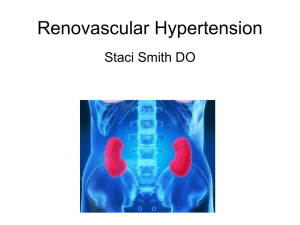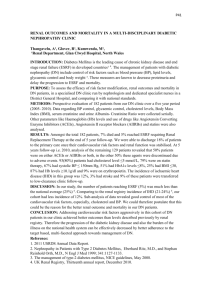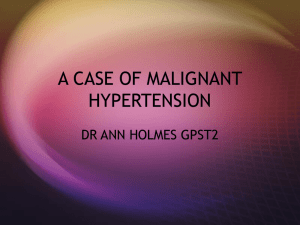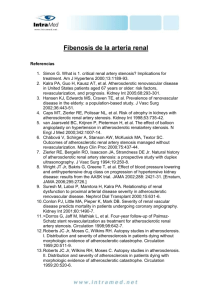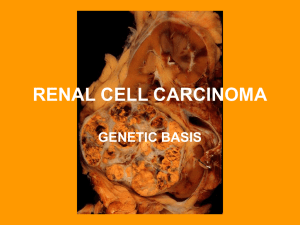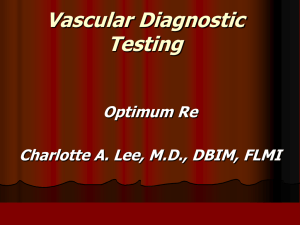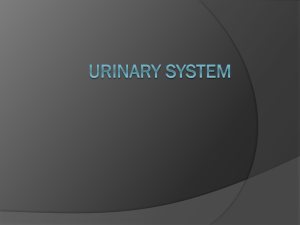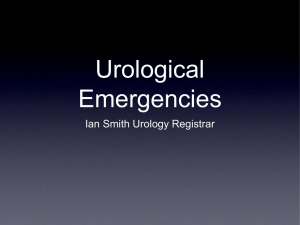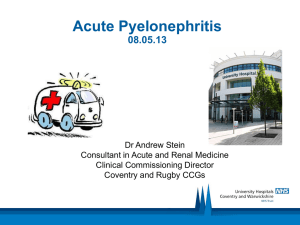Renovascular Hypertension
advertisement
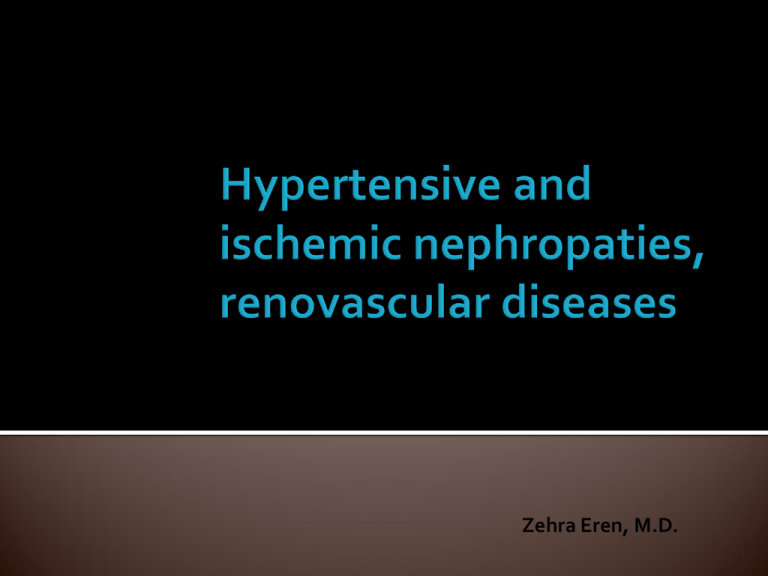
Zehra Eren, M.D. • explain hypertansion and renal disease interaction, • describe renovascular diseases • describe diagnostic evaluation • explan therapy in renovascular deseases • describe and manage renal artery and vein thrombosis • explain microvascular renal diseases Asemptomatic ‘’İncidental Renal Artery Stenosis’’ Renovascular Hypertension İschemic Nephropathy Accelerated CV Disease -Congestive heart failure -Stroke -Secondary aldosteronism Asemptomatic ‘’İncidental Renal Artery Stenosis (RAS)’’ Renovascular Hypertension İschemic Nephropathy Accelerated CV Disease -Congestive heart failure -Stroke -Secondary aldosteronism Some degree of RAS can be identified in 20%- 45% of patients undergoing vascular imaging Most of these stenoses are of little or no hemodynamic significance Asemptomatic ‘’İncidental Renal Artery Stenosis (RAS)’’ Renovascular Hypertension İschemic Nephropathy Accelerated CV Disease -Congestive heart failure -Stroke -Secondary aldosteronism Reduced renal perfusion Rise in arterial pressure Diagnosis is established only in retrospect after succesful reversal of HT with revascularization 3%-5%, F>M Medial fibroplasia is the most common Location: midportion of the vessel Smoking is a risk factor for progression Most common renovascular lesion (75% - 84%) Location: origin of artery Associated with HT, DM, HPL, smoking, abnormal renal function Asemptomatic ‘’İncidental Renal Artery Stenosis’’ Renovascular Hypertension İschemic Nephropathy Accelerated CV Disease -Congestive heart failure -Stroke -Secondary aldosteronism Establish presence of RAS: location and type of lesion Establish whether unilateral or bilateral stenosis (or stenosis to a solitary kidney) Establish presence and function of stenotic and nonstenotic kidneys Establish hemodynamic severity of renal arteral disease Plan vascular intervention Physiologic and functional studies of the Renin-Angiotensin system -plasma renin levels -measurement of renal vein renin levels Noninvasive imaging and assesment of the renal vasculature -Doppler USG -radyonuclide imaging -magnetic resonance arteriography -computed tomographic angiography Improved BP Prevent morbidity and mortality Preservation of renal function Medical therapy Surgical therapy -angioplasty -angioplasty and stent replacement Hemolytic- Uremic Syndrome (HUS) Thrombotic- Thrombocytopenic Purpura (TTP) Microangiopathic hemolytic anemia Thrombocytopenic purpura Acute renal failure Fever Neurologic dysfunction

